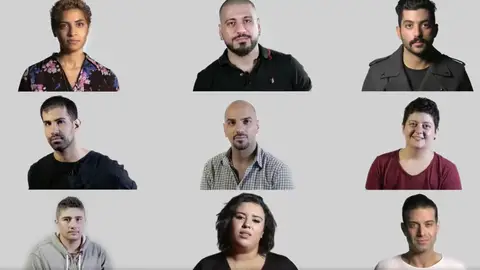LGBT Arabs Explain What It's Like To Be Queer In The Muslim World

A new video from Human Rights Watch offers a glimpse into the lives of LGBT Muslims in the Middle East and North Africa. The "No Longer Alone" series sees a group of gays, lesbians, and transgender people from countries like Iraq, and Egypt—some with their faces obscured—talking about being stigmatized, harassed, and physically attacked.
But they also share the strength and joy they felt from embracing their true selves, and remind us that there is progress being made.
Norma, a trans woman from Lebanon, recalls the first time she realized presenting as a woman made her happy. She was a child, and her mother put makeup on her for Halloween. "I still remember that day," she said. "How happy I was and how comfortable I felt... [Later] I developed a thick skin because of all the things I heard and went through. It's like water—It doesn't stick."
Noor, a lesbian from Sudan, speaks about the life-changing moment she realized she wasn't alone: "I found this [Facebook] group that had many Sudanese lesbian girls. I wrote, 'Where are you people?' I realized I was not alone in the world and that there are many people like me, and I was very happy."
Hamed Sinno, the front man for the Lebanese rock band Mashrou' Leila, opens up about being bullied in school.
"I felt like a freak of nature. That there was something completely wrong with my existence, even... What I didn't realize is that there is nothing wrong with me. It's the people around me who were wrong."
While social media has enabled LGBT Arabs to connect with each other in the virtual world, in the real world being out can be a dangerous decision. After concertgoers waved a rainbow flag at a Mashrou' Leila concert in Egypt last year, police began an anti-gay crackdown that resulted in at least seven arrests. But there is still hope.
"My father was against me in every way," recalls Dalia, an Egyptian lesbian. "But he transformed from hateful to accepting and tolerant."
And gay Moroccan writer Abdellah Taïa reminds viewers they don't need to "change."
"You're gay; it's not a disease," he says into the camera. "You're not against religion or Islam. You're not against your culture, or the state, or your family."





